I haven't tested to see if this will translate to SQL correctly, but if we assume ctx.CustomerEvents is DbSet<CustomerEvent> you could try this:
var targetCustomerIds = ctx
.CustomerEvents
.GroupBy(event => event.CustomerId)
.Where(grouped =>
grouped.Any(event => event.EventType == "deposit")
&& grouped.Any(event => event.EventType == "registration"))
.Select(x => x.Key)
.ToList();
and then select all events for these customers:
var events = ctx.CustomerEvents.Where(event => targetCustomerIds.Contains(event.CustomerId));
To get targetCustomerIds dynamically with a variable number of event types, you could try this:
// for example
var requiredEventTypes = new [] { "deposit", "registration" };
// First group by customer ID
var groupedByCustomerId = ctx
.CustomerEvents
.GroupBy(event => event.CustomerId);
// Then filter out any grouping which doesn't satisfy your condition
var filtered = GetFilteredGroups(groupedByCustomerId, requiredEventTypes);
// Then select the target customer IDs
var targetCustomerIds = filtered.Select(x => x.Key).ToList();
// Finally, select your target events
var events = ctx.CustomerEvents.Where(event =>
targetCustomerIds.Contains(event.CustomerId));
You can define the GetFilteredGroups method like this:
private static IQueryable<IGrouping<int, CustomerEvent>> GetFilteredGroups(
IQueryable<IGrouping<int, CustomerEvent>> grouping,
IEnumerable<string> requiredEventTypes)
{
var result = grouping.Where(x => true);
foreach (var eventType in requiredEventTypes)
{
result = result.Where(x => x.Any(event => event.EventType == eventType));
}
return result;
}
Alternatively, instead of selecting the target customer IDs, you can try to directly select your target events from the filtered groupings:
// ...
// Filter out any grouping which doesn't satisfy your condition
var filtered = GetFilteredGroups(groupedByCustomerId, requiredEventTypes);
// Select your events here
var results = filtered.SelectMany(x => x).Distinct().ToList();
Regarding the inability to translate the query to SQL
Depending on your database size and particularly on the size of CustomerEvents table, this solution may or may not be ideal, but what you could do is load the optimized collection to memory and perform the grouping there:
// for example
var requiredEventTypes = new [] { "deposit", "registration" };
// First group by customer ID, but load into memory
var groupedByCustomerId = ctx
.CustomerEvents
.Where(event => requiredEventTypes.Contains(event.EventType))
.Select(event => new CustomerEventViewModel
{
Id = event.Id,
CustomerId = event.CustomerId,
EventType = event.EventType
})
.GroupBy(event => event.CustomerId)
.AsEnumerable();
// Then filter out any grouping which doesn't satisfy your condition
var filtered = GetFilteredGroups(groupedByCustomerId, requiredEventTypes);
// Then select the target customer IDs
var targetCustomerIds = filtered.Select(x => x.Key).ToList();
// Finally, select your target events
var events = ctx.CustomerEvents.Where(event =>
targetCustomerIds.Contains(event.CustomerId));
You will need to create a type called CustomerEventViewModel like this (so you don't have to load the entire CustomerEvent entity instances to memory):
public class CustomerEventViewModel
{
public int Id { get; set; }
public int CustomerId { get; set; }
public string EventType { get; set; }
}
And change the GetFilteredGroups like this:
private static IEnumerable<IGrouping<int, CustomerEvent>> GetFilteredGroups(
IEnumerable<IGrouping<int, CustomerEvent>> grouping,
IEnumerable<string> requiredEventTypes)
{
var result = grouping.Where(x => true);
foreach (var eventType in requiredEventTypes)
{
result = result.Where(x => x.Any(event => event.EventType == eventType));
}
return result;
}
It should now work fine.

